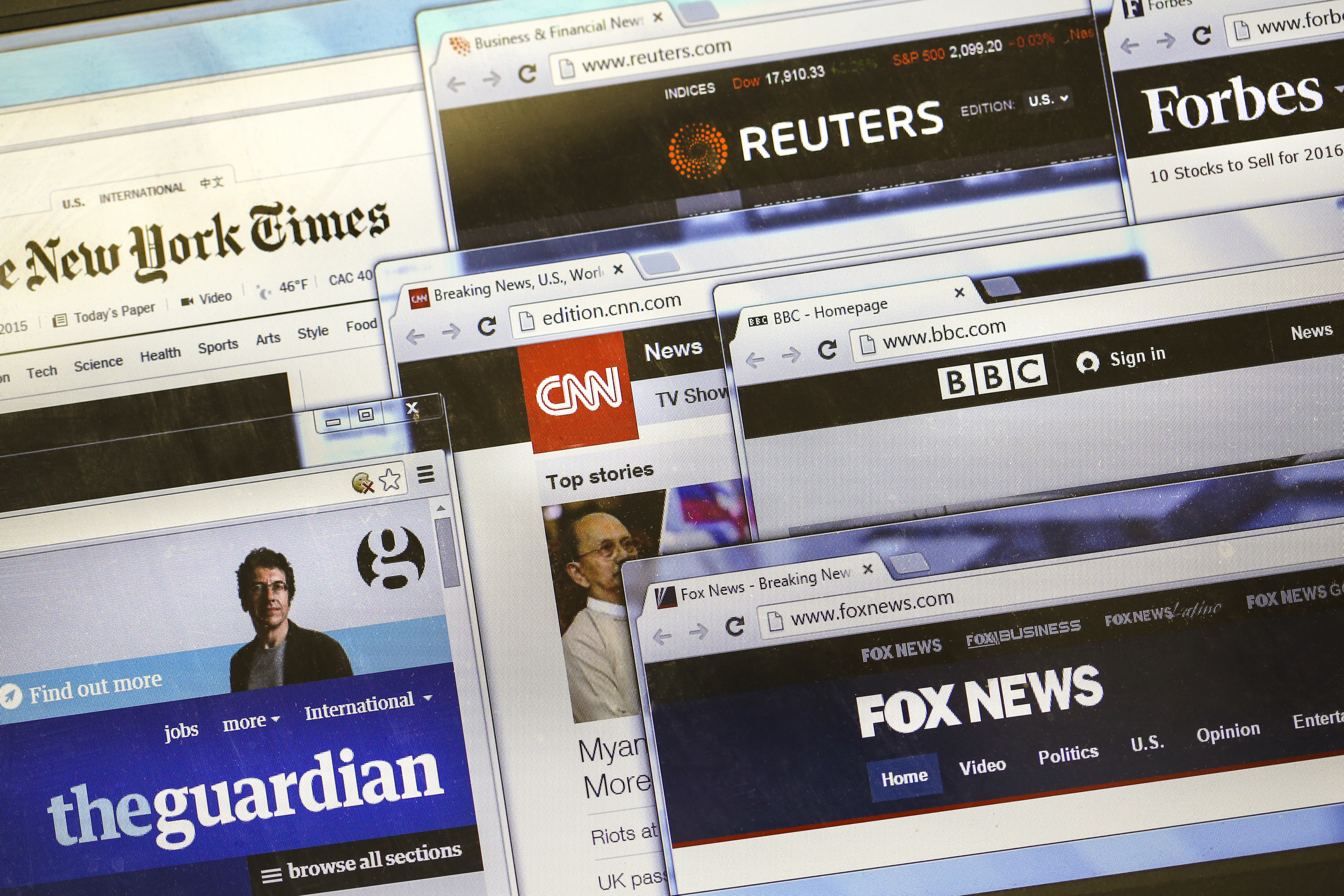It’s somewhat amusing and also frustrating to watch as members of the press muse, “Why doesn’t the public trust us?” And the wonderment coming from them is genuine, as if they truly cannot grasp what it is that turns so many off to their political reporting.
Brian Stelter of CNN loves to boast of all the worldwide bureaus his network has, which certainly allow for comprehensive overseas coverage. We’re witnessing that firsthand, with images and footage coming out of Ukraine as the Russian invasion continues. Likewise, the New York Times has a compelling and well-reported international section.
But note that I said political reporting — it is there that the press excel in buffoonery that continues to drag down their reputation. The most recent example is Florida legislation prohibiting classroom instruction about sexual orientation and gender identity in kindergarten through third grade. The bill’s name is “Parental Rights in Education.” Democrats in the state Legislature and activists dubbed it the “Don’t Say Gay” bill.
Putting aside for a moment the somewhat silly games politicians play with the names of legislation — whether it is on purpose (the USA PATRIOT Act) or accidental (the United States Fair and Reciprocal Tariff Act, aka the FART Act) — it’s fair game for activists and politicians to rename legislation they oppose for messaging purposes, even when it is misleading.
However, when the press start using the misleading moniker as if that’s the bill’s name, that’s a problem. The most recent example comes from Associated Press White House reporter Zeke Miller, who
tweeted
, “The Florida legislature has passed the ‘Don’t Say Gay’ bill, which Gov. Ron DeSantis is expected to sign into law.” That is not the name of the law, and that phrase is nowhere in the legislation’s text.
National Public Radio’s journalistic malfeasance is more blatant. The title of a
Feb. 9 article
reads, “‘Don’t Say Gay’ bill would limit discussion of sexuality and gender in Florida schools.” The third paragraph starts, “Versions of the so-called Parental Rights in Education bill passed a Florida House committee in January and cleared a Senate committee this week.”
It is not “so-called.” It is the name of the legislation.
The partisan battle between Republicans and Democrats is not supposed to get carried out by the press. They should know better, particularly when the most outspoken critics of the critics repeat over and over again that the press don’t take sides.
The best way to illustrate the absurdity is to look at it in reverse. Democrats, who are concerned the Supreme Court will overturn Roe v. Wade thanks to a conservative majority, have crafted legislation to codify Roe into federal law. The name of the bill? The Women’s Health Protection Act. Cute.
Let’s say Republicans in Congress dubbed it the “Kill More Unborn Babies Act.” Not only would the press not consider, even for a moment, using that in a story, let alone a headline, we’d watch as media “fact checks” showed up to provide the proper “context.” Yet, in the case of the Florida bill, not only did the press not offer any context, they took up the appellation and ran with it.
Part of the problem stems from the national press’ obsession with Ron DeSantis. Many Republicans view him as the better choice to run for president in 2024 than former President Donald Trump. While DeSantis embodies much of what draws people to Trump, DeSantis is much more polished in his interactions with the press, has a firm grip and cognizance of policy details, and understands the legislative and executive processes, having served in Congress before running for governor. In addition, he’s a former Naval officer, graduated from Yale, and received his law degree from Harvard. Ironically, DeSantis is a textbook definition of the “elite” that some in the populist Right love to decry.
Still, with that resume, DeSantis represents a pretty clear threat in a presidential race, particularly if Biden chooses not to run for a second term. Biden’s heir apparent, Vice President Kamala Harris, has proven so out of her depth that it’s no wonder she had to abandon her presidential campaign before anyone cast a primary vote.
It’s no secret that most journalists are Democrats. Studies continually reveal that truth. However, that fact is not in and of itself a negative. It’s when they deny it that it becomes a problem. What differentiates political reporters from CNN, the New York Times, the Washington Post, the Associated Press, NBC, etc. from the Washington Examiner, National Review, the Nation, and Mother Jones is that readers know the latter publications are right and left of center, respectively. There is no effort to pretend otherwise.
So when CNN’s Chris Cillizza says, “For the billionth time: Reporters don’t root for a side,” it’s gaslighting, because we can see it happening in real time. When Democrats make up a bogus moniker for a bill they oppose and journalists pick that up and report it as the name of the bill, that is rooting for a side. They cannot continue to do that and then wonder aloud about the lack of public trust.








